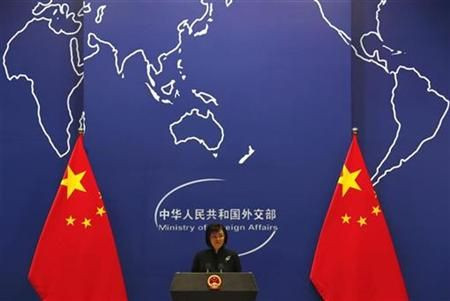China to boost bilateral trade with Africa

China intends to boost its economic ties with Africa, which is already worth about $100 billion, according to a report by the government.
China and Africa have had bilateral trade since the 1950s, exporting technology, machinery, electronic products as well as steel, copper and other metals over recent years.
The volume of bilateral trade between the two nations exceeded $100 billion, of which $50.8 billion is China's exports to Africa and $56 billion is imports from the country, the report said. China was also Africa's largest trade partner in 2009.
The two nations now seek to further enhance this relationship in the next three years.
China plans to provide about $10 billion in preferential loans to African countries, as well as open its markets further to Africa.
It will gradually give zero-tariff treatment to 95 percent of exports from the LDCs in Africa having diplomatic relations with China, the report said.
China already grants zero-tariff treatment to about 60 percent of the exported commodities from those countries in 2010.
The government also intends to cancel debts of interest-free government loans that will mature by the end of 2009 owed by all HIPCs and the LDCs in Africa having diplomatic relations with China.
China also provides aid to Africa, and intends to train 15,000 people for African countries in the next three years, set up schools and offer scholarships among other things.
It also promised to deepen China-African cooperation in medical care and service by providing 500 million yuan worth of medical equipment and malaria-fighting materials to 30 hospitals and 30 malaria prevention and treatment centers.
However, the report comes merely a week after WikiLeaks cables revealed that China's offers of aid to Africa were not completely altruistic. Johnnie Carson, the U.S. assistant secretary of state for Africa, called the country a pernicious economic competitor with no morals, about propping up rogue regimes, according to one newspaper.
He said that China is in Africa to secure votes in the UN from African countries.
Other cables alleged that China bribed officials to win contracts in Kenya. AFP reports stated that China, a key ally of Sudan, was not opposed to the arrest of Sudanese President Omar al-Bashir as long as its oil interests were protected.
The country has long been criticized for its support of Bashir as well as Zimbabwe's Robert Mugabe.
African countries are attracting huge investors over the past few years, given their vast land and mineral reserves.
A report on the New York Times on Wednesday said that vast acres of arable land, which are currently being used for farming by generations of Africans, are being leased to private investors and foreign governments.
The report stated that China was among the countries that had expressed interest or made investments in some of the land, particularly for sugarcane.
The influx of Chinese investors into Africa has also brought about tensions and criticism over control of Africa's resources, worries about unfair business tactics and complaints that local communities get too little of the economic rewards, according to a report on ABC News.
The current Eight Point Plan intends to increase assistance to African countries, and set up the China-Africa Development Fund of about $5 billion to encourage and support Chinese companies investing in Africa.
Africa has made about $10 billion worth of investments in China, in the petrochemical engineering, machinery, transportation and telecommunications industry among others.
Questions continue to linger about China's intentions in Africa. China has bought in various new technologies and several billions of investment into the developing nation.
© Copyright IBTimes 2024. All rights reserved.





















